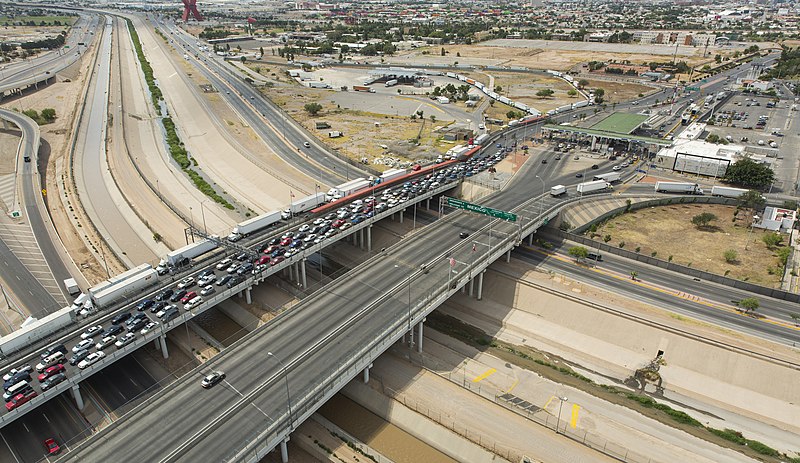- 14 3402-5578
- Rua Hygino Muzy Filho, 737, MARÍLIA - SP
- contato@latinoobservatory.org
 Fonte: https://www.flickr.com/photos/cbpphotos/27793302444/
Fonte: https://www.flickr.com/photos/cbpphotos/27793302444/
Venezuelan migrants gathered at the top of the Paso del Norte Bridge, which connects the cities of El Paso (TX, USA) and Juárez (CHH, MX), in hopes of verifying a rumor circulating on social media that the US border was temporarily open. On Sunday, March 12, they rushed through the toll booths on the Juárez side of the bridge to reach the top, hoping for an opportunity to enter the United States.
Many of them, like Vaneska and Kelvin, have persistently tried to arrange an interview through the “CBP One” application to enter the United States, but have not been able to. This application is a tool introduced by the US Department of Homeland Security for the Humanitarian Parole Program, which is mandatory for migrants from Venezuela, Haiti and Nicaragua. However, several migrants reported difficulties and errors when trying to use the app, which further complicated the already challenging situation they face.
Frustrated with the government's immigration application and the difficult living conditions on the streets of Juárez, these migrants are increasingly desperate. They share similar stories of lack of space in shelters, an app that doesn't work and police officers who harass and extort them for the little money they earn through their daily informal work. Their dreams of a better life, where they can help their families in Venezuela, seem increasingly unattainable.
“On Facebook we saw an image that said they were going to open (the bridge) today because it was Migrant Day, something like that,” Vaneska told the Texas Tribune. “We just wanted an answer, so we came to see if it was true.” Sadly, their hopes were dashed when U.S. Customs and Border Protection officials implemented “customs hardening efforts,” including physical barriers to prevent them from entering the country.
The bridge, which is a northbound crossing connecting downtown El Paso and Juárez, reopened after the migrants left, but the protest caused disruptions to other bridges, including the Stanton Street Bridge and the Bridge of the Americas. These migrants, whose lives are filled with uncertainty, live in an uneasy limbo, not knowing what the future holds for them.
Rumors of the opening of the border are often spread through social media or word of mouth among migrants. They also claim that these rumors are tactics used by criminal organizations to disrupt authorized processes and encourage more migrants to pay exorbitant fees to the cartels that help them cross the border illegally.
This incident is not the first caused by border opening rumors. In November last year, a group of Central American migrants tried to enter the United States across the Rio Grande after hearing rumors that the border was open. They encountered resistance from the Mexican authorities, who blocked their path and prevented them from crossing to the north bank of the river.











